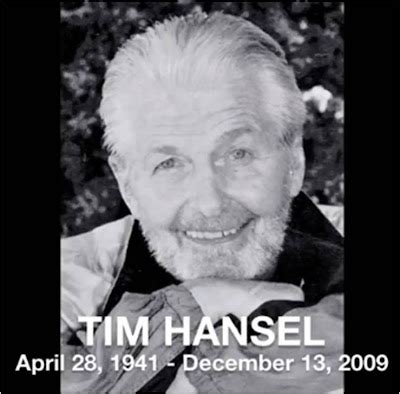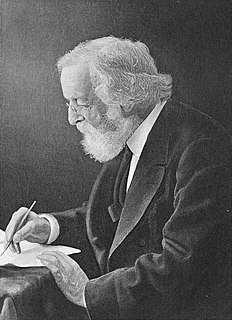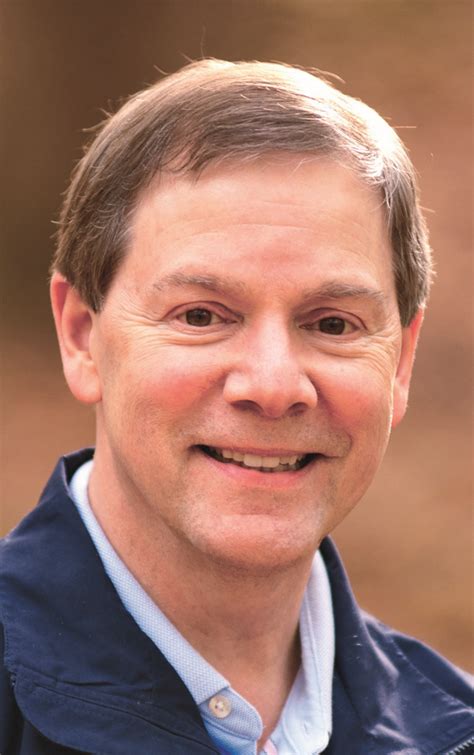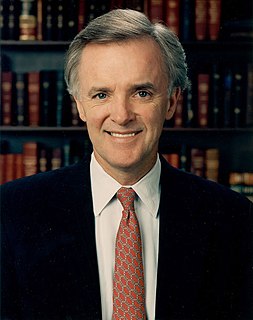A Quote by Charles R. Swindoll
God often does His best work in us when He catches us by surprise and introduces a change that is completely against our own desire.
Related Quotes
The goal of faithfulness is not that we will do work for God, but that He will be free to do His work through us. God calls us to His service and places tremendous responsibilitie s on us. He expects no complaining on our part and offers no explanation on His part. God wants to use us as He used His own Son.
God has spoken very boldly about his desire to be a presence in our lives. If I want to heal the ache and loneliness in my own life, one of the things I need to do is get away, alone with God. . . . In the silence God will speak to you most powerfully. Too often his words to us get muffled, lost, or covered by the crowd of many noises both inside and outside of us. We must have a quiet heart in order to hear God's distinctive message to us.
Let us not torment each other because we are not all alike, but believe that God knew best what He was doing in making us so different. So will the best harmony come out of seeming discords, the best affection out of differences, the best life out of struggle, and the best work will be done when each does his own work, and lets every one else do and be what God made him for.
God in His answers to prayer often says "Yes." Sometimes He says "Wait." Often He says "No." In any case, His will is done, and true faith is to believe that what happened has happened for the best. If one does not take that attitude, he is setting his personal desire against the wisdom of God. Oftentimes we confuse with faith merely that which we desire.
Trusting God means transferring our confidence and hope from ourselves to him, acknowledging that we have no ability in ourselves to live in a way that pleases him. Only he can change us by the power of his Spirit in us. This trust is manifested in a context of obedience in our lives to the biblical mandates God calls us to pursue. Training means acting upon that trust by doing things that help us rely upon God more and live out his desire for us.
It is not merely our own desire but the desire of Christ in His Spirit that drives us to grow in love. Those who seldom or never feel in their hearts the desire for the love of God and other men, and who do not thirst for the pure waters of desire which are poured out in us by the strong, living God, are usually those who have drunk from other rivers or have dug for themselves broken cisterns.
If the Almighty in his mercy allows us to settle peace among the christian leaders, we shall press on not only to destroy completely the bad seeds, but also to expand the territories of Christ, and, supported by these achievements, we shall go forward, with God favouring his own purposes, to the most holy expedition against the infidels, the desire for which is deeply fixed in our heart.
There are two gods. The god our teachers teach us about, and the God who teaches us. The god about whom people usually talk, and the God who talks to us. The god we learn to fear, and the God who speaks to us of mercy. The god who is somewhere up on high, and the God who is here in our daily lives. The god who demands punishment, and the God who forgives us our trespasses. The god who threatens us with the torments of Hell, and the God who shows us the true path.
There are two gods. A god who casts us off because of our sins, and a God who calls to us with His love.
One thing we may be sure of, however: For the believer all pain has meaning; all adversity is profitable. There is no question that adversity is difficult. It usually takes us by surprise and seems to strike where we are most vulnerable. To us it often appears completely senseless and irrational, but to God none of it is either senseless or irrational. He has a purpose in every pain He brings or allows in our lives. We can be sure that in some way He intends it for our profit and His glory.
Nothing can tend so much to humble us before the mercy and justice of God as the consideration of His benefits and our own sins. Let us, then, consider what He has done for us, and what we have done against Him; let us call to mind our sins in detail, and His gracious benefits in like manner, remembering that whatever there is of good in us is not ours, but His, and then we need not be afraid of vainglory or of taking complacency in ourselves.
True prayer is only another name for the love of God. Its excellence does not consist in the multitude of our words; for our Father knoweth what things we have need of before we ask Him. The true prayer is that of the heart, and the heart prays only for what it desires. To pray, then is to desire -- but to desire what God would have us desire. He who asks what he does not from the bottom of his heart desire, is mistaken in thinking that he prays.






































